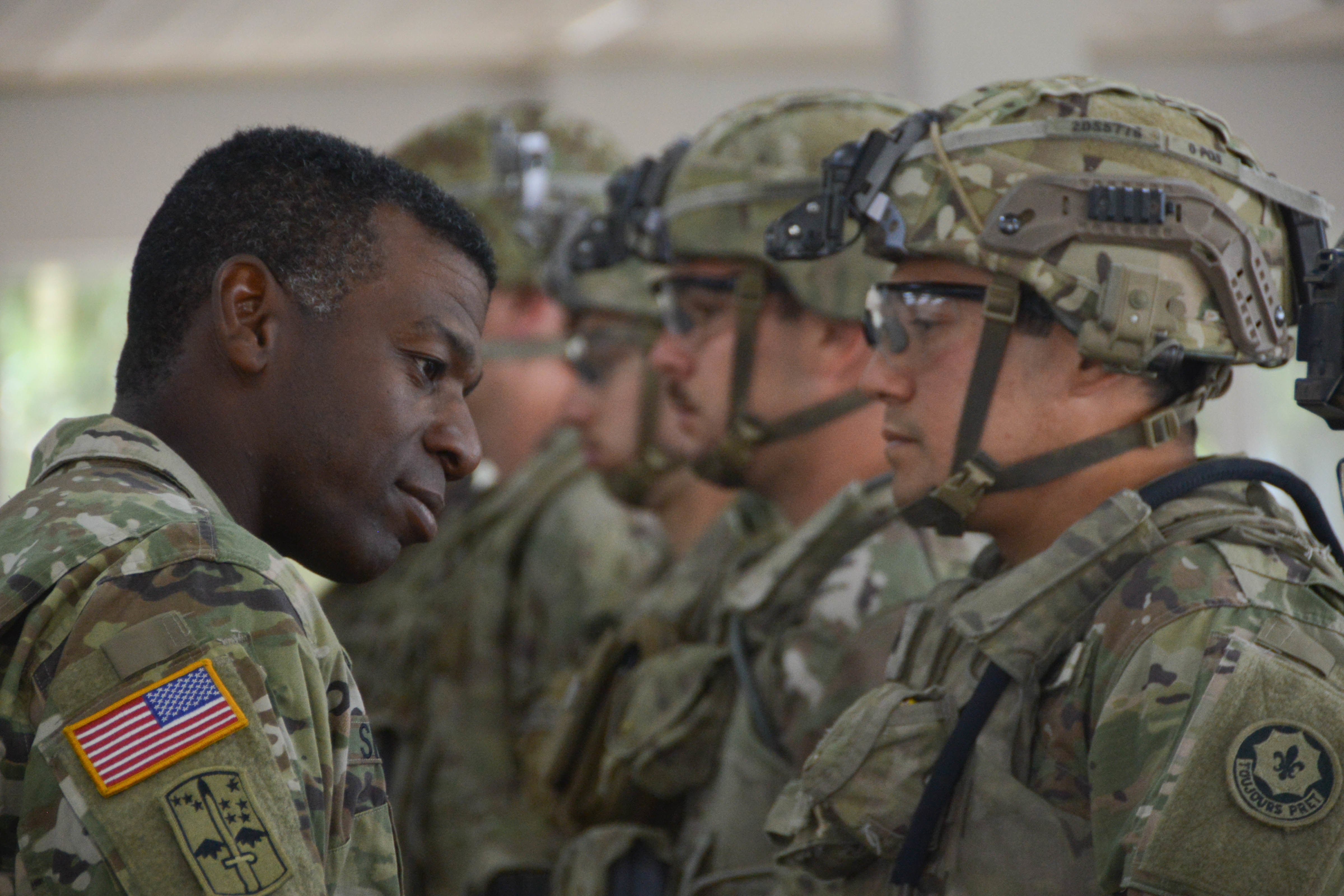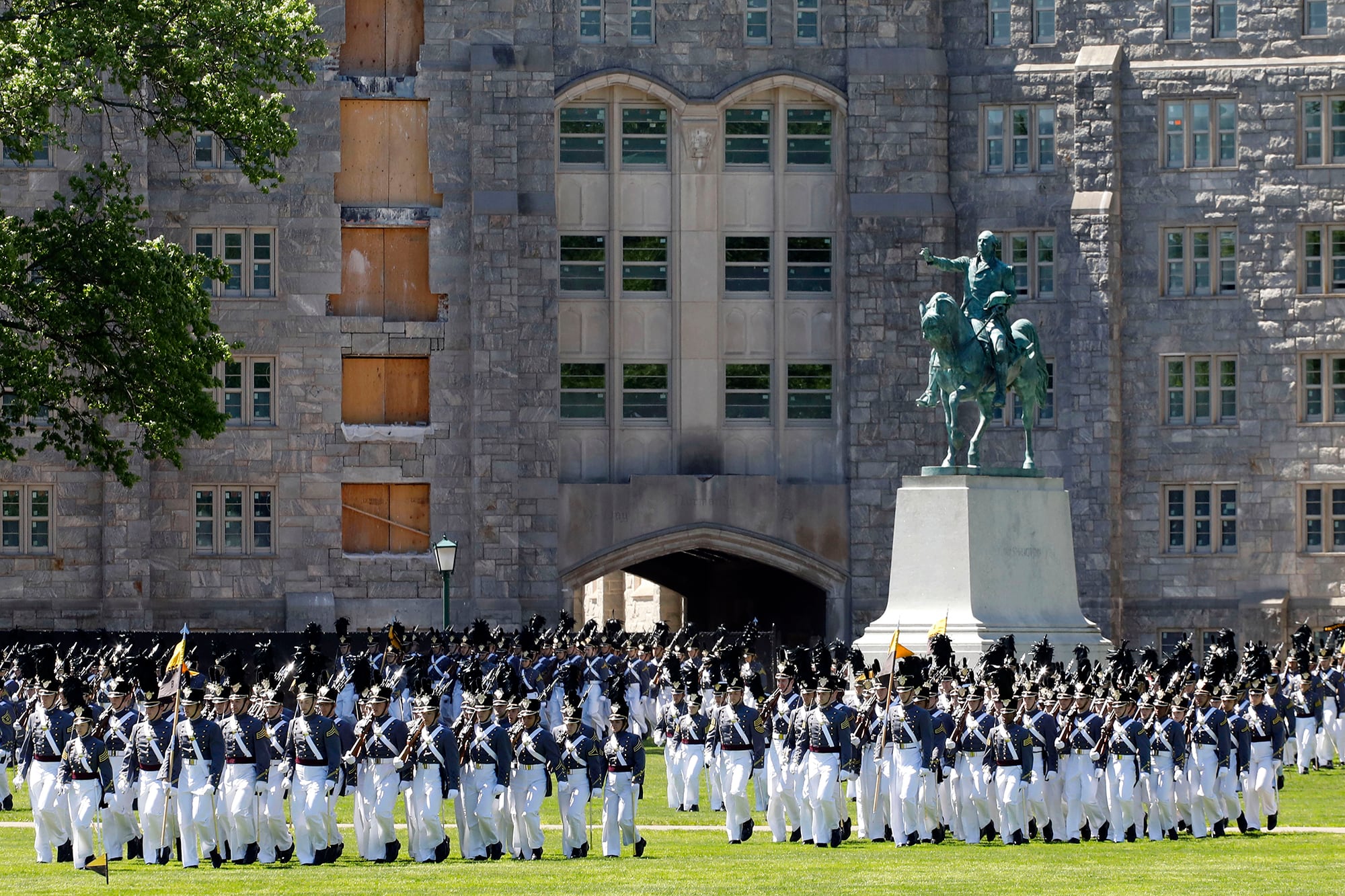The Army’s latest initiative to tackle racial bias within its ranks intends to remove “anything that is a divisive symbol” from formations, which could potentially include the Confederate flag, the service’s top civilian leader said Thursday.
Even as the ground service mulls its approach, Army Sec. Ryan McCarthy said the Pentagon is “very close” to making its own decision on a uniform policy pertaining to divisive symbols that will impact all the armed services.
“Project Inclusion is looking at all these things and anything that is a divisive symbol, we do want to take those off our installations and keep that sort of thing out of our formations,” McCarthy said during a teleconference call with reporters Thursday.
When asked whether that policy will specifically include Confederate flags, McCarthy said, “We would have any divisive symbols on a ‘no-fly list,' if you will.”
Lt. Col. Driece Harris, a spokeswoman for the secretary, clarified that a decision has not yet been reached on whether the Confederate flag would be banned.
Some joint commands are already rolling out policies of their own. U.S. Forces Japan recently barred displays of the Confederate flag from its installations, according to a July 2 memo signed by the unified command’s leader, Air Force Lt. Gen. Kevin Schneider.
“While I acknowledge some might view [the Confederate battle flag] as a symbol of regional pride, many others in our force see it as a painful reminder of the history of hate, bigotry, treason, and devaluation of humanity that it represents,” Schneider said. “Regardless of perspective, one thing is clear: it has the power to inflame feelings of racial division. We cannot and will not tolerate a symbol that incites this sort of division among us.”
RELATED

Schneider’s memo, like other instructions already issued by Marine Corps and Navy leadership, instructs commanders to identify and remove the Confederate flag from public spaces and work areas on U.S. installations.
Army senior leaders said they have also passed advice on to Congress regarding a similar controversy that involves 10 Army installations bearing the names of Confederate generals.
“[Civilian leaders] are working through that [advice] and trying to come up with a long-term and enduring policy,” Army Chief of Staff Gen. James McConville told reporters in late June. “We certainly have some ideas on the best ways to do this, whether its the symbology of certain things or taking a look at what the names of certain posts should be.”
Under a proposal formally released Monday, the military would receive $1 million to rename the Army posts in question, which include Fort Bragg in North Carolina, Fort Hood in Texas, and Fort Benning in Georgia.
President Donald Trump, who has rejected the idea of renaming the Army posts, previously promised to veto of any legislation including forced changes.
Both the House and Senate Armed Services Committees’ drafts of the annual defense authorization bill have provisions requiring changes to the installation names, Military Times reported Monday.
RELATED

The Army has been working to address other issues of racial bias within the service through an initiative called “Project Inclusion.”
The Army announced in June that it will no longer require official photos in promotion packets, a policy that was recently expanded to all other services by Defense Secretary Mark Esper.
An Army study in 2018 showed that eliminating the photos reduced unconscious biases in the promotion process, improving the outcomes for women and minorities.
Project Inclusion also involves the review of racial disparity in the Army justice system following the release of a Government Accountability Office report last year that found black and Hispanic service members are more likely to face a trial than their white counterparts.
In June, the Army’s judge advocate general started an examination of racial disparity within the Army justice system, focusing on AWOL cases, urinalysis results, sexual assault and sexual harassment.
The Army is in the “very early stages of figuring out what could cause this,” Lt. Gen. Charles Pede, the service’s ranking attorney, told congressional lawmakers in mid-June.
Pede said he has already directed a “comprehensive assessment” in conjunction with the Army’s provost marshal general “to examine why the justice system is more likely to investigate certain soldiers and what our investigations and command decisions tell us about this issue.”
Kyle Rempfer was an editor and reporter who has covered combat operations, criminal cases, foreign military assistance and training accidents. Before entering journalism, Kyle served in U.S. Air Force Special Tactics and deployed in 2014 to Paktika Province, Afghanistan, and Baghdad, Iraq.




